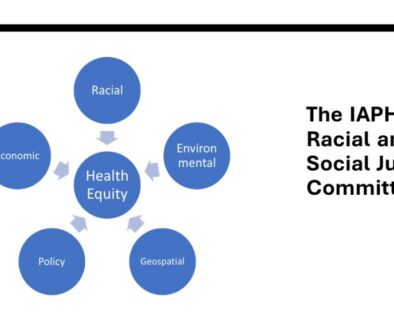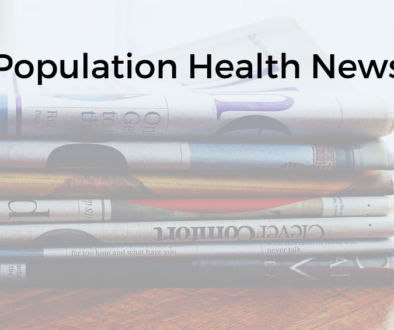Beyond the Boxes, Part 6: Final Thoughts and Gratitude to Our Communities
Natalie Smith, Rae Anne Martinez, Nafeesa Andrabi, Andrea (Andi) Goodwin, Rachel Wilbur, Paul Zivich
This post is the final entry in our series about the use of race and ethnicity in population health research. Our previous posts have detailed information around defining, measuring, coding, and analyzing data on race and ethnicity. A full list of our guiding questions is linked here. Here we offer some concluding thoughts.
Rigorous consideration of race and ethnicity can be difficult to get completely right, but that is no excuse to stop striving to do better. The guiding questions presented in previous posts have helped our team critically reflect on our own work, and we hope that our questions, resources, thoughts, and tips will be helpful for other researchers moving forward.
These guiding questions are largely focused on how individuals conduct research. We recognize that in asking population health researchers to make their assumptions explicit, we may see a slew of work that relies on the essentialist perspective of race or other problematic assumptions. We should be prepared for this, but if we can’t make implicit assumptions explicit, how can we address them?
To that end, we offer two considerations beyond individual research practices. First, we recommend careful peer review. Call out essentialism and ambiguity in language when you see it. Tell editors essentialism is unfounded. Ask authors to clarify the purpose of including race and ethnicity in their study. Ask for measurement details. We also need to see fundamental shifts in curricula to move away from essentialist teachings. Thoughtful consideration of social constructs like race and ethnicity should be centered in coursework. Discussions and work surrounding these social constructs should not be viewed as “niche” or “fringe” to the study of population health; rather, they are integral to population health inquiry, and they should be celebrated as such. Furthermore, journal editors should enforce their own standards for publications.
We also want to leave readers with a few unanswered questions our team has been thinking about:
- How can we best measure structural racism and discrimination? The recent IAPHS conference had several sessions with a focus on structural racism and featured work from researchers like Dr. Rachel Hardeman and Dr. Tyson Brown.
- How can we balance the need to have large enough “cell sizes” for proper estimation with the fact that data aggregation masks critical differences in lived experiences?
- Can we—and should we—work to standardize race and ethnicity measurements?
- Native Americans are unique in that tribal nations are sovereign nations. How can population health researchers work with Native communities without relying on the inappropriate racialization of Native American people? For some existing guidance on this topic, see this IAPHS blog post from Desi Rodriguez-Lonebear.
- How do we think about multiracial or multiethnic populations? Is collapsing folks into a “mixed” category the best practice? How can we better capture the diversity of lived experiences and better understand the population health of multiracial or multiethnic populations?
- Race is often treated as fixed, but race can vary for individuals over time. In longitudinal analyses with multiple assessments of race, what do we do analytically?
We see time and again how discrimination and racism negatively impact the health of BIPOC (Black, Indigenous, and People of Color) in the US. As population health researchers continue to incorporate race and ethnicity into their work, we encourage them to critically review their own assumptions and actions. We still have a long way to go in order to “do a better job,” but we hope you see that many of these changes can be made right now.
A document of our considerations spanning from study design to conclusions is linked here. Please reach out to our study team with any feedback you might have about our ongoing work. There may be resources we have missed, and we would welcome the opportunity to expand our resource repository.
More information on our project and other resources can be found here.
A final note from our team.
Our work often discusses race and ethnicity as if they are solely burdens—as if everything about our racial and ethnic identity is rooted in power, in discrimination, in pain, in oppression, in violence. This is perhaps becoming even more common in our fervor to study and dismantle systems of structural racism and disenfranchisement in health without deep, rich measures of structural and interpersonal racism.
But racial and ethnic identity are more than proxies for oppression. Here, too, are joy, love, and belonging. Within our group, we identify as Black, Indigenous, white, immigrant, Latina, Muslim, South Asian, and multiracial. We are proud of our racial and ethnic identities, because to do so is to be proud of our ancestors, of our families, and of the communities who have raised us, cherished us, and given us voice. In our identities, we find warmth, laughter, love, and comfort.
As these posts are published on the heels of Hispanic/Latinx Heritage Month and Native American and Alaskan Native Heritage Month, we want to recognize the complexities of various racial and ethnic identities, the continued struggle against oppression, as well as the joy, love, and belonging within.
Acknowledgements
We want to enthusiastically thank the many individuals who have made this work possible: Joelle Artere-Roberts, Ganga Bey, Kate LeMasters, Denise Mitchell, Brooke Staley, Dr. Bob Hummer, and Dr. Allison Aiello. We are grateful to the Carolina Population Center for training support (T32 HD091058) and for general support (P2C HD050924).
Resources
- Jee-Lyn García, J., & Sharif, M. Z. (2015). Black lives matter: a commentary on racism and public health. American journal of public health, 105(8), e27-e30.
- Phelan, J. C., & Link, B. G. (2015). Is racism a fundamental cause of inequalities in health?. Annual Review of Sociology, 41, 311-330.
- Hardeman, R. R., & Karbeah, J. M. (2020). Examining racism in health services research: A disciplinary self‐critique. Health Services Research, 55, 777-780.
- Boyd, R. W., Lindo, E. G., Weeks, L. D., & McLemore, M. R. (2020). On racism: a new standard for publishing on racial health inequities. Health Affairs Blog, 10.











All comments will be reviewed and posted if substantive and of general interest to IAPHS readers.